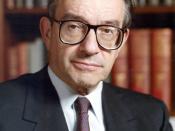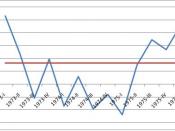On a common Tuesday, September 11th music on my favourite radio station was interrupted by a special news block, which reported that an airplane tore into the one of the twin-towers of the World Trade Centre in New York. My first thought was about dramatic weather conditions that could have led to such a terrible accident. I couldn't even imagine that it might have been a terror act or something like that. In some minutes together with millions of people all over the world I was watching views of the catastrophe on TV and couldn't believe my eyes. If I hadn't heard about this before, I would have definitely thought that a new Hollywood movie was on. The understanding and feeling of what had happened and of the scale of this came only after some hours of embarrassment and shockâ¦But business and economic spheres can't afford hesitation and delay. On this day ruined not only the walls of the World Trade Centre, but also, which is much more important for the economy, the assumption of the USA being a standard of stability, trust and prosperity.
Businessmen, investors and brokers recognised that the faster they reacted, the more they benefit (or probably the less they lose) in the situation. Market response was immediate. Words of Alan Greenspan, chairman of the Federal Reserve, illustrate it: "Greater uncertainty for business and consumers hits economic activity, at least in the short term".
Already since the beginning of the year 2001 economists have been arguing about whether the economy of the United States was declining or not. The situation, indeed, was not very obvious because of a number of attempts of the Federal Reserve to stimulate the expansion by cutting the interest rate. Today, however, practically all of the specialists say that the American economy...


